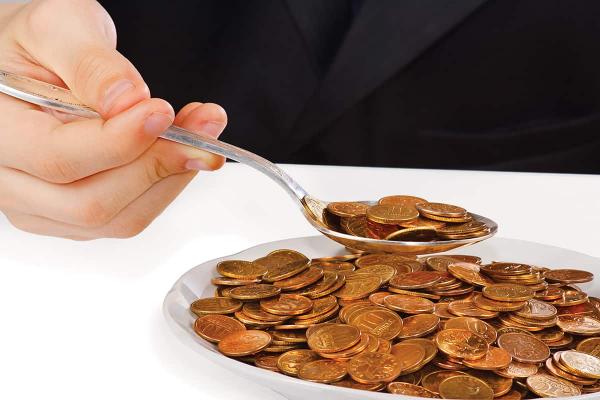
Did you know that the average American household spends almost as much money eating out than on food purchases for food eaten at home? The Bureau of Labor Statistics reports that in 2011, 41 percent of food dollars (an average $2,600) was spent on food away from home. Meanwhile, the National Institute on Retirement Security reported in 2013 that the median retirement account balance is $3,000 for all working-age households.In other words, half of us spend almost as much eating out in one year than we've saved for retirement.The popularity of eating out is part of a modern lifestyle. It has not always been the case. In the 1950s, less than 20 percent of the food budget was spent on food away from home. Even by 1975 it was only 22 percent. But now, for the convenience and time savings afforded by paying for someone else to prepare our food, we scan the food menu and fill our stomach while ignoring the investments menu and leaving our retirement savings bare.We are becoming a nation of big people. We consume more calories than prior generations and food consumed away from home is one of the sources of these extra calories, since one of the appeals of eating out is often the larger portions and higher fat (flavor) content. The Centers for Disease Control and Prevention report the average restaurant meal is four times larger today than it was in the 1950s and the average adult weighs 26 pounds more.So not only is eating out making us broke, it's making us fat.If you are feeling a little bit guilty, I've made my point. Most of us won't change our behavior unless we have a compelling reason to do so. Here are four tips that you can use to help streamline your food budget (and perhaps your waistline, too) and bulk up your retirement savings.
1. You can decide to go cash only for your eating out purchases.
On payday, put the amount you plan to use on eating out in an envelope. That's all you get to spend on away-from-home food until your next payday. The beauty of this system is you can't overspend. Also, you are more careful in deciding how much you spend eating out. If you were to ask a fast food store manager how much more he sells to people using plastic instead of cash, you might be surprised to hear 30 percent or more. If this is to work, you are going to have to decide to leave your debit or credit card in your pocket; otherwise you'll keep on spending more than you planned.
2. Consider growing a garden in your backyard.
Even if you don't have a backyard, there are often community garden spots available for you to use. Make it a family project and include your children. You get to teach them about working and get fresh fruits and vegetables. In some communities, you may even be able to raise chickens. Again, this is a great assignment for your children. My thirteen-year-old is now in charge of feeding, watering, and even cleaning up after a flock of chickens and plucking feathers after a chicken has met her demise. He has learned that chickens can't do much of anything for themselves and fresh eggs are great.
3. Who says there is a rule that only mom (or even dad) has to fix the meals?
Give your children some life skills and train them to do the cooking. You may be short on time, but your kids don't work 40+ hours a week. Your teens, or maybe even younger children, can make great cooks. One of my kids likes pizza, but we don't order it very often so he learned how to make pizza dough. Now, if he wants pizza for dinner, he fixes it himself - from scratch. It is less expensive and it tastes better than restaurant pizza.
4. What if you just love eating out and can't give it up?
Here is a challenge for you: at the end of the month, total the amount of money you spent eating out, write a check for the same amount and add it to your normal retirement savings. This will either boost your retirement savings or cause you to cut back on your eating out expenses. Sounds like a win-win. Here are some more tasty money-saving tips.
Following each of these steps may not be quite as easy as ordering through a fast food drive-up window, but the results are definitely worth it. Remember, more money for retirement and less weight on your bathroom scales means that one day, when you can qualify for those popular senior discounts, you will have the money to spend.

